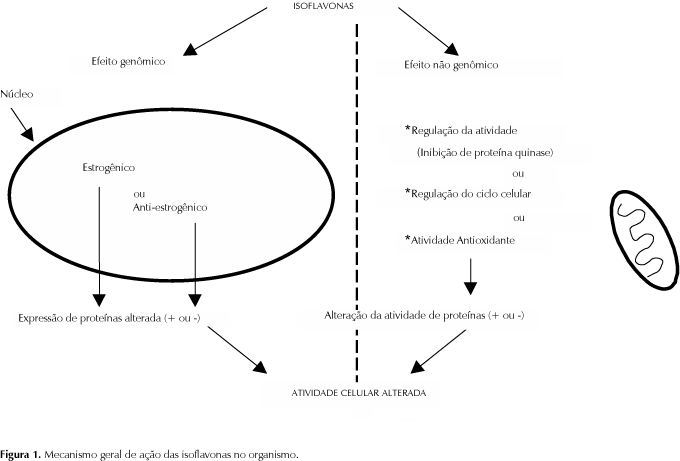During the last decades, scientific evidences have shown that isoflavones may have influence on chronic diseases control, such as cancer, diabetes mellitus, osteoporosis, and cardiovascular diseases. These compounds are widely found in beans, particularly in soybeans (Glycine max). In addition to their anti-estrogen activity, they have biological properties that may have impact on many biochemical and physiological processes. The evidences that isoflavones protect against chronic diseases are based on experimental and epidemiological studies. In humans, epidemiological studies clearly show a higher incidence of some kinds of cancers (for example: breast, prostate and colon) and cardiovascular diseases in western people that are exposed to limited amounts of soy isoflavones, such as daidzein and genistein, on diets. Additional evidences have been verified in several experimental animal models. The isoflavones may prevent bone loss and osteoporosis in post-menopause women. Effects of genistein on insulin release have also been showed. It seems that their mechanisms of action depend on their estrogen agonist-antagonist properties and other biochemical properties such as enzymatic activity inhibition and antioxidant effects.
isoflavones; soybean; cardiovascular diseases; neoplasms; osteoporosis; diabetes mellitus


